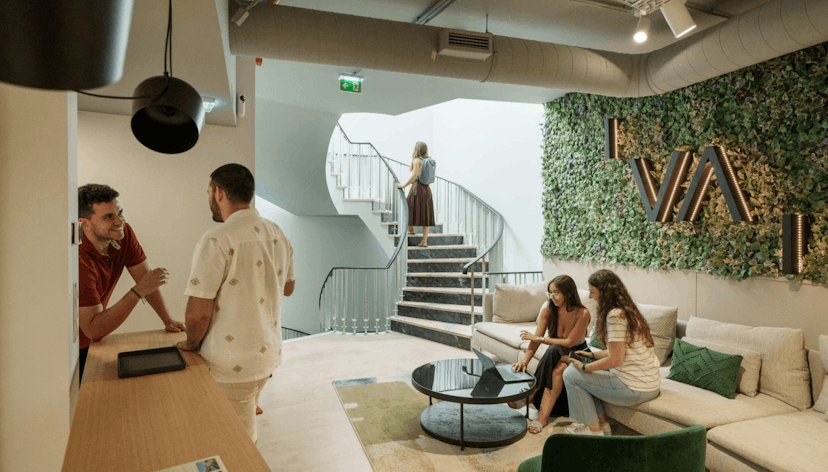- Features
- Solutions
- Pricing
- Resources
- Contact
- Book a demo
Coworking Smarts
Discover stories, thinking, and insights from experts on shared and coworking space industry.

5 days ago • Helga Moreno
Innovation Junction: a Guide to Makerspaces in Coworking Environments
Are you a coworking space boss looking to take your space to the next level of awesome? Makerspaces are like turbochargers for creativity, and we're here to show you how to add one to your coworking environment. Imagine your members turning ideas into reality with a collaborative workshop buzzing with energy. That's the magic of a makerspace, and it's easier than you think! What is a Makerspace? Imagine a dedicated space within your coworking environment buzzing with creativity. A makerspace is

22 days ago • Wanda Lafond
How a Coworking Space for Writers Is Different From the Rest
Every day, a slew of thematic coworking spaces open their doors. They provide visitors with a fully equipped environment to complete daily tasks, manage contacts, and collaborate effectively. Writers are no exception. Their working environment, however, is very different from that of IT specialists or gamers. Do you know how to create a comfortable working environment for writers? In 2022, about 1.8 million people will work in coworking spaces, according to statistics. And this is something to t

last month • Helga Moreno
Coworking Alliance Summit: Join the Movement!
Event Date: March 6, 2024 Theme: Collective Ownership Speakers: Jenny Poon, Tony Bacigalupo, Ashley Proctor, Jerome Chang, Iris Kavanagh, and You! Spacebring team is thrilled to be part of the excitement surrounding the 2024 Coworking Alliance Summit, an exceptional event uniting coworking alliances, community leaders, and industry professionals worldwide. We wholeheartedly support the Summit's mission and values and are excited to share all the details about this remarkable gathering. Uniting f

2 months ago • Francisca Morim
5 Steps to Transform a Small Coworking Project into a Recognized Brand
All of us have already been blocked when thinking about how to finish our big projects. There's nothing more common than that. When I was introduced to the Vertical Coworking project, I had to create my own list of tips and steps to transform the project and put the Vertical Coworking on the Map. Now that I've put them into practice and seen that they're really working, I've decided to share them with you. 1. Get to Know the Project The first person who needs to fall in love with your project

2 months ago • Helga Moreno
The Complete Guide to Seamlessly Integrating Event Spaces in Coworking Hubs

2 months ago • Amanda E. Clark
How to Set up an LLC: a Step-by-Step Guide for Coworking Operators

3 months ago • Helga Moreno
15 Rarely-Heard-of Trends for Coworking Space Growth

3 months ago • Helga Moreno
Shaping Your Coworking Space Brand from Concept to Culture

3 months ago • Helga Moreno
Top 30 Coworking Conferences to Attend in 2024

4 months ago • Helga Moreno
2024 Coworking Space Trends Explored and Explained by Experts

4 months ago • Tudor Popp
From Work-place to a Great Place

6 months ago • Helga Moreno
All You Need To Know About a 24-Hour Coworking Space
Get inspiring coworking stories in your mailbox
Delivered twice a month, unsubscribe any time.
Sign Up for Our Newsletter
Convert expertise into action. Check out our state of the art coworking platform.
Use and manage your coworking space easily with Spacebring.
